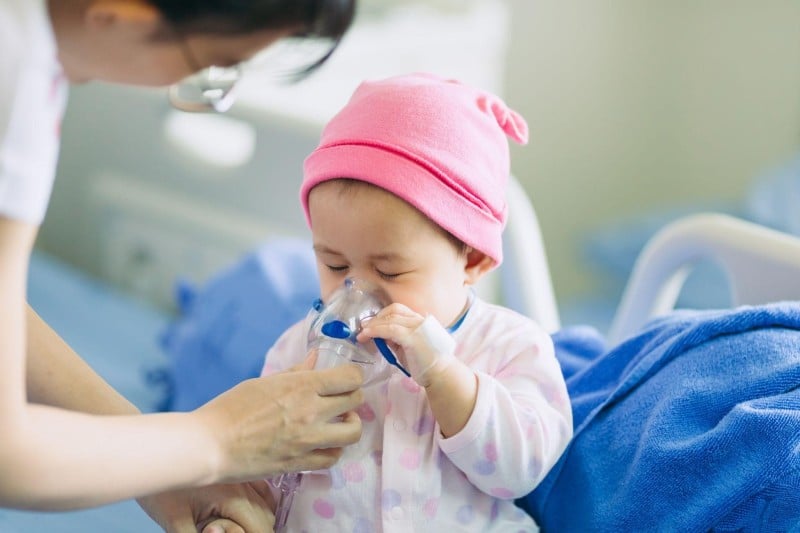According to a report by the Ministry of Natural Resources and Environment , air pollution in Hanoi has been on the rise recently, with the air quality index (AQI) reaching poor levels at times.
The Ministry of Health recommends health protection measures when air pollution occurs.
According to a report by the Ministry of Natural Resources and Environment, air pollution in Hanoi has been on the rise recently, with the air quality index (AQI) reaching poor levels at times.
Although air pollution has seasonal cycles and is affected by climate and weather conditions, monitoring data from the Ministry of Natural Resources and Environment shows that pollution levels are increasing, seriously affecting human health and socio-economic development activities.
 |
| Air pollution can also cause skin damage, eye diseases, and adverse effects on the nervous system, immune system, and mental health. |
The World Health Organization (WHO) has shown that long-term exposure to air pollutants can increase the risk of acute respiratory infections, chronic obstructive pulmonary disease, asthma, cardiovascular disease and stroke. Air pollution can also cause skin damage, eye diseases, and adverse effects on the nervous system, immune system and mental health.
To proactively protect people's health, especially sensitive people such as children, pregnant women, people with respiratory and cardiovascular diseases, and the elderly, the Department of Health Environment Management (Ministry of Health) has developed recommendations to help people take preventive measures when air quality is low.
These recommendations are based on the AQI air quality index, thereby helping people understand the air pollution situation and take appropriate preventive actions.
According to recommendations, people need to regularly monitor air quality on the websites of the Ministry of Natural Resources and Environment or the Department of Natural Resources and Environment of provinces and cities to implement appropriate health protection measures.
Wear a mask when going out: Always wear a quality and properly sized mask when going out, especially when the air is polluted.
Environmental hygiene: Clean and ventilate living space, use mask and eye protection when cleaning if the air is polluted.
Limit the use of honeycomb coal and firewood stoves: Replace honeycomb coal and firewood stoves with electric stoves, induction cookers or gas stoves to reduce polluting emissions.
Planting trees: Trees help reduce dust and clean the air in the living area. Quit smoking: Smokers should quit or limit smoking, do not smoke indoors.
Regular health check-ups: People should monitor their health and have regular health check-ups to promptly detect diseases related to air pollution.
Health protection measures when air quality is at different levels: When AQI is at moderate level (51 - 100). Normal people: Can participate in outdoor activities without restrictions.
Sensitive people: Reduce time outdoors, avoid strenuous activity. If symptoms such as difficulty breathing, cough or fever occur, seek medical attention immediately.
When AQI is poor (101 - 150): Normal people: Reduce outdoor activities, avoid areas with high risk of pollution such as crowded streets, construction sites, industrial areas.
Sensitive people: Limit going out, clean nose and throat with saline, monitor health, if symptoms appear, go to hospital.
When AQI is at unhealthy levels (151 - 200): Normal people: Limit outdoor activities, especially strenuous activities such as sports. Use public transportation instead of motorbikes or bicycles to reduce exposure to polluted air.
Sensitive people: Avoid going outdoors or only go out when necessary. Use a mask to prevent fine dust and wash your nose, gargle, and clean your eyes regularly.
When AQI is at very bad level (201 - 300): Normal people: Avoid all outdoor activities, prioritize indoor activities. If going out, use anti-dust masks and minimize exposure to polluted air.
Sensitive people: Avoid outdoor activities completely, stay indoors with windows closed, and only go out when unavoidable. Monitor your health and go to the hospital if you have acute symptoms.
When AQI is at hazardous levels (301 - 500): Normal and sensitive people: Absolutely limit all outdoor activities. Close windows and doors to avoid exposure to polluted air. Closely monitor your health, if symptoms such as difficulty breathing, cough, fever appear, go to a medical facility immediately.
Additionally, schools may suspend classes if the AQI is at hazardous levels for three consecutive days or adjust school hours accordingly.
Air pollution is becoming a serious problem in large cities, directly affecting public health. Actively monitoring air quality and implementing health protection measures are necessary to minimize the negative impacts of air pollution, especially for vulnerable groups such as children, the elderly, and people with chronic diseases.
Source: https://baodautu.vn/bo-y-te-khuyen-cao-cac-bien-phap-bao-ve-suc-khoe-khi-o-nhiem-khong-khi-d239466.html


























![[Photo] National Assembly Chairman attends the seminar "Building and operating an international financial center and recommendations for Vietnam"](https://vphoto.vietnam.vn/thumb/1200x675/vietnam/resource/IMAGE/2025/7/28/76393436936e457db31ec84433289f72)









































































Comment (0)